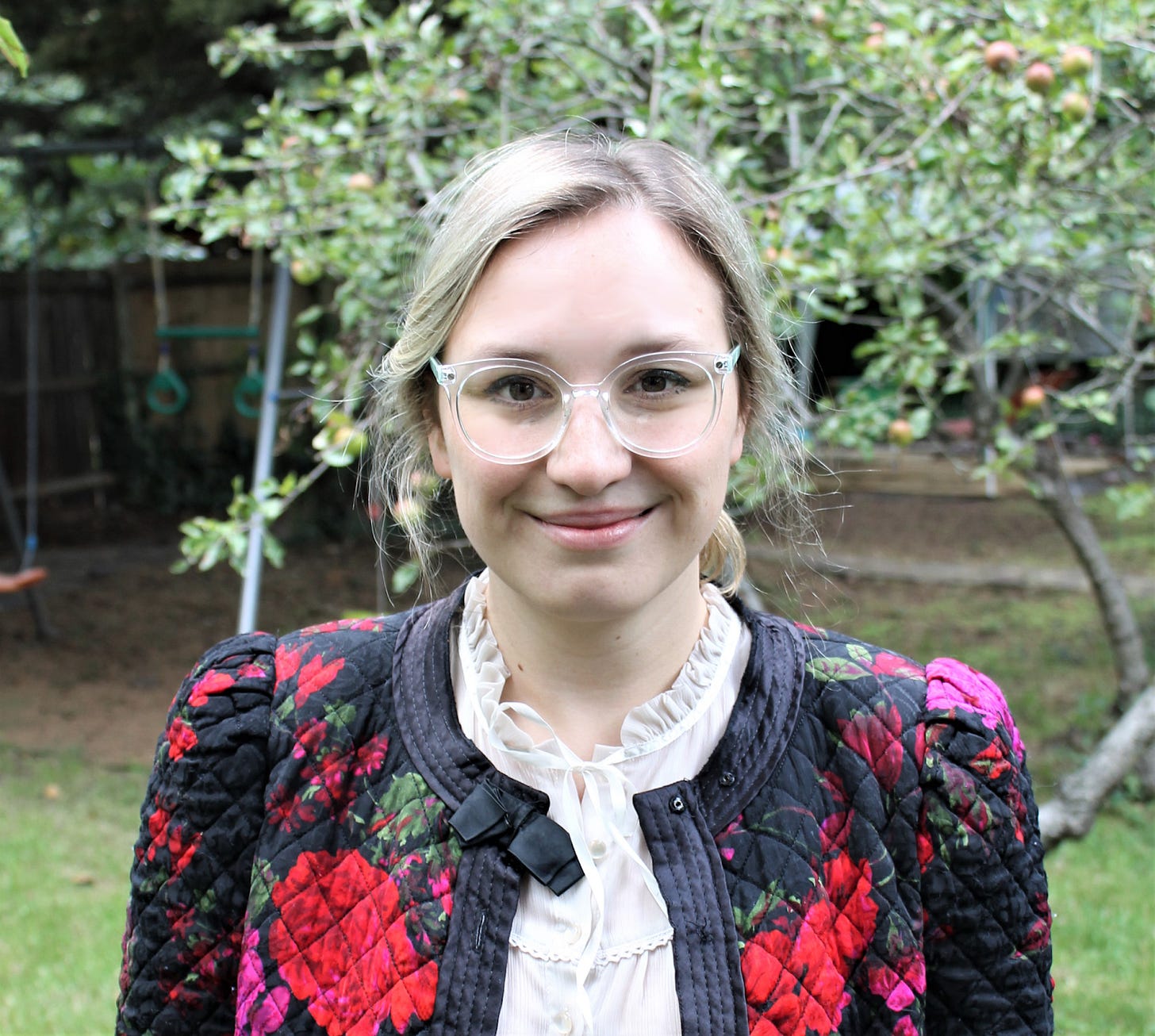Announcing: The Metagov Governable Spacemakers
Selected fellows for the Governable Spacemakers Fellowship
Metagov is pleased to introduce the team selected for our Governable Spacemakers Fellowship! Following our open call, we have chosen the Plot Twisters team, bringing together three practitioners: Jenny Liu Zhang (Digital Artist), Amanda Nicole Curtis (Speculative Digital Ethnographer), and Joanna Rivera-Carlisle (Digital Governance Engineer). Over the next eight months, they will transform their "Small Hassles Court" minigame into a governable space, exploring how digital governance can frame conflict mediation as a self-governance exercise that prioritizes fairness, respect, and collaboration by design.
Here's their vision for the project:
Vision
Since 2020, Plot Twisters has been developing Twisterland, an online game world fostering self-reflection and emotional literacy through therapeutic minigames. Our design collective, made up of mostly women and POC from diverse walks of life, identity backgrounds, and skill sets, has spent five years conducting trauma-informed and interdisciplinary research, developing concept art, and designing game mechanics. Through the Governable Space-Makers fellowship, the three of us are representing the broader Plot Twisters team to build our team’s first minigame, the “Small Hassles Court,” which will explore how to playfully emerge governance in an online space.
The Small Hassles Court is a conflict resolution space where players can address minor interpersonal issues with friends or partners in a playful environment. Located in Viewfinder Valley, a part of Twisterland dedicated to exploring our social roles and relationships, this space welcomes discussions about miscommunications, hurt feelings, and other "small hassles" that often go unaddressed. By reframing these as opportunities to both explore wellbeing needs and bridge shared values, the Small Hassles Court helps build emotional literacy in relationships.
We believe that this minigame can help frame the activity of governance design as an accessible first-principles project, where the values of the individual participants consensually decide the collective resolutions. The gameplay itself will be a process of defining and inhabiting the roles of claimants, judges, and observers in the space: first, the playful fictional setting will help diffuse emotional barriers to the hassle from the outset, then participants will engage in embedded learning of their different roles and perspectives through turn-based activities. In this way, the project can encourage participants to tap into different approaches to learning about a conflict, from practicing narrative self-reflection firsthand to compassionately mediating the conflicts of others.
The Small Hassles Court subverts the paradigmatic idea of a court room as institution-upholding and carceral: instead, it is an ironic and playful environment that serves the shared culture between the claimants, where the “laws of the land” are mutually discussed and decided instead of imposed by an institutional power system. In this way, we hope our project can model to players—particularly young people—how to navigate their own emotional, social, and spiritual needs, and the needs of others, as a form of healthy self-governance from the bottom up. Conflicts—even the smallest hassles—can teach us a lot about our values, and how nurturing them are social endeavors that never exist in a vacuum.
The Small Hassles Court is intended to pilot solutions to bridge diverse perspectives online in consensual, emotionally-sensitive, and values-driven ways. How people manage their values in close relationships—while extremely important in our increasingly digital societies—is severely under-explored in online communities. As Governable Spacemakers we aim to frame conflict mediation as a self-governance exercise which prioritizes fairness, respect, and collaboration by design. We believe digital experiences should help users get to know themselves and others better in mutually respectful ways, especially in a time when online interactions often take advantage of manipulative heuristics.
Artistically, the Small Hassles Court will build upon mechanics Plot Twisters has already explored in our Storytelling Cards and design research (see our public bibliography for more). For example, users may be able to see avatars that reflect their emotional valence or escalation of the conflict—e.g. water orbs vs. dragons—or modify a “pettiness” dial to set the tone of their courtroom proceedings. The rest of the experience is being explored collaboratively through the fellowship. Though a version of this game will be accessible in Twisterland, we expect the fellowship output to live standalone on its own domain to allow the public to explore emotional governance on their own.
The Governable Spacemakers
Jenny Liu Zhang - The Digital Artist
Jenny is an American digital designer and artist who specializes in using speculative art practices to create meaningful participatory experiences online. In addition to working as a full-time product designer, she has been leading Plot Twisters since 2020, a game design collective creating a digital game world for journaling and self-reflection. This game, Twisterland, explores the language around emotions, wellbeing needs, and values in consensual social relationships, and how playful worldbuilding can encourage the accessibility of these topics. Her current focus, "Small Hassles Court," is a conflict resolution minigame within Twisterland and the subject of the Governable Spacemakers fellowship. Jenny holds a B.S. from the University of Southern California in "Arts, Technology and Business of Innovation" and will complete an MSc in "Narrative Futures" from the University of Edinburgh in 2025. She loves bright colors and dark chocolates.
Amanda Nicole Curtis - The Speculative Digital Ethnographer
Amanda is a researcher and games enthusiast. Her work explores how immersive technologies and digital play shape meaning making. She is particularly interested in using research to understand and empower young people’s digital futures. Amanda designs research projects which treat people not just as participants but as active collaborators. She is currently completing her doctorate from the University of Oxford, where she researches how playing video games reconfigures the ways people think, create knowledge, and make meanings in their everyday lives. She was previously a Research Fellow at the University of Tokyo. She has worked in industry as a user experience researcher, with companies such as Adobe and Sony. Amanda currently runs the Oxford Games & Technologies group, is an ambassador for Women in Games, and is a Limit Break mentor. Amanda holds a Master’s from the Oxford Internet Institute and a Bachelor’s from the University of Southern California. Her creative stamina is powered almost entirely by bottomless matcha lattes.
Joanna Rivera-Carlisle - The Digital Governance Engineer
Joanna is an interdisciplinary researcher, developer, and designer. Her work focuses on the intersections of technologies with culture, heritage, and co-creation. She specialises in spatial technologies (Extended Reality), data taxonomies, and gamified interactions in the context of decolonial theory and cultural heritage. Joanna has worked with young people in various capacities, from universities to NGOs, to private and public sector projects. She is particularly interested in how emerging technologies can be shaped to allow for self-governance by a diverse variety of users, especially where histories of exclusion and disenfranchisement shape digital agencies. Joanna holds a doctorate from the University of Oxford, as well as degrees from King’s College London, Potsdam University, and the University of London. She would trade all of her degrees for a freshly baked croissant.
The Governable Spacemakers Fellowship is a project of Metagov, with grant support from the Center for Cultural Innovation - AmbitioUS and the Henry Luce Foundation.












way to go Plot Twisters!